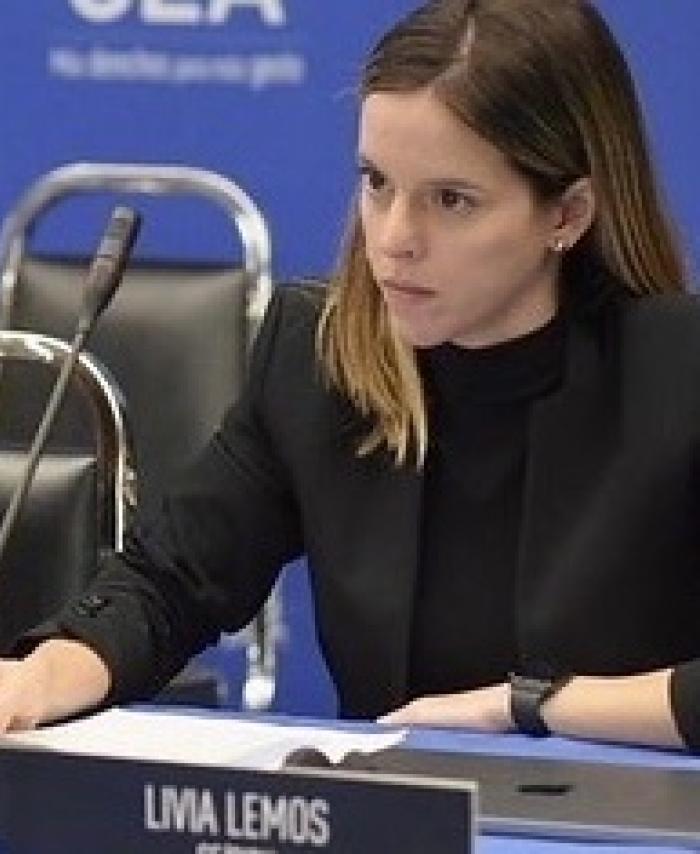
Research interests
International Refugee Law, Human Rights, Latin America
Lívia Lemos Falcão de Almeida
Lawyer with expertise in human rights and international law. Currently employed as a Human Rights Consultant at the Inter-American Commission on Human Rights (IACHR), the primary and independent human rights organ of the Organization of American States (OAS). Concurrently, pursuing a doctorate in Law, Government, and Public Policy at the Autonomous University of Madrid (UAM), focusing on the research topic of the massive human rights violations under the international refugee law.
She holds a master’s degree in international law from the Complutense University of Madrid (UCM). Additionally, she achieved a master’s degree in public law, graduating with honors, from the Federal University of Alagoas (UFAL).
Prior experience includes working as a Legal Consultant for the United Nations Development Programme (UNDP) and volunteering at the General Coordination of the National Committee for Refugees (CONARE) in Brazil.
Passionate about advocating for justice, equality, and the protection of human rights on regional and international platforms. Committed to making a meaningful impact through legal expertise and academic pursuits, with a specific focus on human rights advocacy and refugee studies.
Planned Research at ODID
My doctoral research aims to propose a conceptual framework for the identification/determination of the situational element of massive human rights violations for the purposes of applying the expanded definition of a refugee provided for the Cartagena Declaration of 1984.
In this regard, after the conclusion of the theoretical foundation of my thesis, my proposed research project at Refugee Studies Centre (RSC) aims to delve into the final chapters of my thesis, which is dedicated to:
- Identifying the elements that determine the pervasive nature of human rights violations to apply the concept of refugee as provided for in the Cartagena Declaration.
- Proposing a conceptual framework for the assumption of massive violations of human rights, as posited in the Cartagena Declaration.
